Best Forex Brokers
Finding the best forex broker requires research and analysis. Look for brokers with competitive spreads, reliable platforms, and robust regulatory compliance. Top forex brokers also offer educational resources and excellent customer support. Consider your trading goals and preferences when choosing a broker.
When selecting a forex broker, it is essential to take a number of aspects into consideration, including reputation, level of regulation, and breadth of services including range of minor and major currency pairs provided.
Forex trading has become increasingly popular in recent years, attracting many individuals interested in generating extra income. Individuals typically work with a Forex broker to participate in the foreign exchange market, which acts as a middleman between the trader and the market.
In order to safeguard investors from dishonest practises and fraud, it is essential to make certain that forex broker has the appropriate licencing and regulation. Trading in foreign exchange currency markets (Forex) has a high potential reward but also a high degree of potential loss.
Best Forex Brokers Table of Contents
- Forex Brokers
- What is a Forex broker, and how do they work?
- The Role of Forex Brokers
- How do I choose the best Forex broker for me?
- Why Do I Need a Broker for Forex Trading?
- Access to the Interbank Market
- Forex Trading Platform
- Leverage
- Execution
- What to Look for When Choosing a Forex Broker
- Regulation
- Trading Platform
- Spread and Commissions
- Leverage
- Education
- What is the customer support offered by Forex brokers, and how reliable is it?
- Is it safe to trade with a Forex broker?
- Risks of Forex Trading
- Are Forex brokers regulated?
- How Much Money Should a Beginner Invest in Forex?
- Can I trade Forex for free with a broker?
- What do Forex brokers charge the fees and commissions?
- What minimum deposit is required to open a Forex account?
- Can I trade Forex with a foreign broker from my country?
- What is the maximum leverage offered by Forex brokers?
- Is Forex Trading Profitable?
- What is the Minimum Deposit for Forex Trading?
- Can I trade cryptocurrencies with a Forex broker?
- How does a Forex broker make money?
- What is the difference between a market maker and STP/ECN Forex broker?
- What is a margin call, and how does it work?
- What is a stop-loss order, and how does it work in Forex trading?
- What is slippage, and how can it affect my trades?
- How can I deposit and withdraw money from my Forex account?
- What is the role of a Forex broker in currency trading?
- How do I open a demo account with a Forex broker?
- What is a swap, and how does it work in Forex trading?
- The Future of Forex Trading
- Forex Brokers Verdict
- Best Forex Brokers List Compared
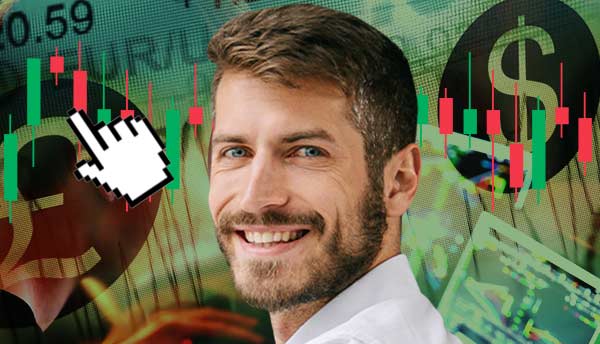
Forex Brokers
Forex, also known as the foreign exchange market, is a worldwide, decentralized currencies market.
The primary goal of forex trading is to exchange one currency for another, expecting the price of the currency you bought to increase compared to the one you sold.
Forex markets, exchange over $6 trillion, every single trading day all over the world.
A forex broker makes it possible to trade currencies through online platforms, such as MetaTrader 4 and 5, cTrader, and others. These platforms offer traders access to real-time market data and analysis tools.
Forex trading is considered a high-risk investment and requires a thorough understanding of the markets and proper risk management techniques. It is important to understand the risks and benefits of the markets and to choose a reputable broker with a good reputation in the industry.
What is a Forex broker, and how do they work?
A Forex broker is a company that offers traders access to a platform that allows them to buy and sell foreign currencies. The broker earns a commission from each trade the trader makes, usually a percentage of the trade's value. The broker is responsible for executing the trades on behalf of the trader and offering a range of tools and resources to help the trader make informed trading decisions.
The Role of Forex Brokers
Forex brokers are intermediaries that facilitate the buying and selling currencies on the foreign exchange market. They provide traders with access to the interbank market, which is the market where large banks and financial institutions trade currencies.
When choosing a forex broker, it is important to consider factors such as regulation, trading platforms, and the availability of educational resources. Choosing a broker that offers competitive spreads and low commissions is also important, as these costs can add up over time and affect your profits.
Forex brokers can be divided into two main categories: market makers and ECNs. Market makers, also known as 'dealing desk' brokers, make money by taking the other side of a trade, essentially betting against their clients. ECNs, on the other hand, match trades between buyers and sellers and make money by charging a small commission.
Besides traditional forex brokers, it is possible to trade currencies through online platforms, such as MetaTrader 4 and 5, cTrader, and others. Market makers and ECNs typically offer these platforms, and they allow traders to place trades and access real-time market data and analysis tools.
How do I choose the best Forex broker for me?
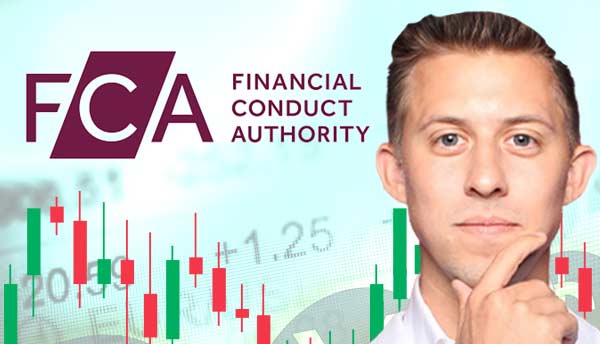
Choosing the best Forex broker for you can be difficult, as there are many factors to consider. Some of the most important considerations include the broker's regulation and reputation, the trading platforms offered, the available assets and instruments, the fees and commissions charged, and the level of customer support provided. It is important to carefully research and compare several different brokers before making a decision.
Why Do I Need a Broker for Forex Trading?
Forex trading is a decentralized market, meaning any central authority or institution does not control it. Instead, currencies are traded between buyers and sellers directly through a network of banks, financial institutions, and individual traders.
A forex broker acts as an intermediary between traders and the market, providing traders with access to the interbank market and allowing them to buy and sell currencies.
Access to the Interbank Market
Forex brokers provide traders with access to the interbank market, which is the market where large banks and financial institutions trade currencies. The interbank market allows traders to access a deeper pool of liquidity and more competitive prices.
Forex Trading Platform
Forex brokers also provide traders with access to a trading platform, which is software that allows traders to place trades and access real-time market data and analysis tools.
Leverage
Forex brokers offer leverage, which means that traders can trade with a larger amount of capital than they have on deposit. Leverage can range from 1:1 to 1:500, meaning that for every $1 you deposit, you can trade up to $500 in the market.
Execution
Forex brokers execute your trade and ensure that your orders are executed promptly and at the best possible price.
In summary, a forex broker provides traders access to the interbank market, a trading platform, leverage, and trade execution services, making it easier to trade currencies in the foreign exchange market.
What to Look for When Choosing a Forex Broker
Choosing the right forex broker is an important step in becoming a successful trader. Here are some factors to consider when choosing a forex broker:
Regulation
Look for a forex broker regulated by a reputable financial authority, such as the FCA in the UK, CySEC in Cyprus, or ASIC in Australia. Regulation ensures that your Forex broker is operating legally and ethically.
Trading Platform
Check the broker's trading platform, and make sure it is user-friendly and offers all the features and tools you need to trade effectively. Some popular platforms include MetaTrader 4 and 5, cTrader, and others.
Spread and Commissions
Look for a broker that offers competitive spreads and low commissions, as these costs can add up over time and consume your profits.
Leverage
Leverage allows traders to trade with a larger amount of capital than they have on deposit. Leverage can range from 1:1 to 1:500; make sure to check the leverage available with the broker you choose
Education
A good broker should provide educational materials such as webinars, video tutorials, and trading guides. Forex broker educational resources will help you learn how to trade effectively and understand the markets.
What is the customer support offered by Forex brokers, and how reliable is it?
Forex brokers typically offer customer support through various channels, such as email, phone, live chat, and support tickets. The level of support and the available hours can vary between brokers, so it is important to research and compare the customer support offered by different brokers before choosing one. The reliability of customer support is also important, as you may need assistance with your account or trading platform at any time. Looking for brokers with 24/7 support and a reputation for quick and helpful responses to customer inquiries is a good idea.
Good customer support is essential, especially for beginners. Make sure the broker you choose offers support in your native language and is available 24/7.
Is it safe to trade with a Forex broker?
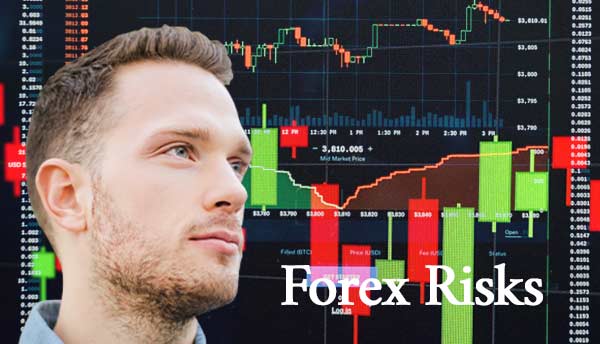
Trading with a Forex broker can be safe if you choose a reputable and regulated broker. Regulated brokers are subject to strict rules and oversight, which helps to protect your investments and ensure fair and transparent trading practices. It is important to carefully research and compare several different brokers before choosing one to ensure that you are comfortable with their level of regulation and safety.
Risks of Forex Trading
Forex trading carries certain risks like any other form of financial trading. Some of the main risks include:
- Leverage Risk: Forex trading typically involves the use of leverage, which can amplify both gains and losses. Leverage risk means that even a small price movement can result in large losses if the trade is leveraged.
- Volatility Risk: The foreign exchange market is highly volatile, and prices can fluctuate rapidly and unpredictably. Volatility Risk can make it difficult for traders to predict the direction of price movements and manage their risk accordingly.
- Interest Rate Risk: Interest rates can have a significant impact on the value of currencies, and changes in interest rates can cause large price movements in the forex market.
- Political and Economic Risk: Political and economic events can also affect the value of currencies, and traders need to be aware of these risks and how they may impact their trades.
- Liquidity Risk: Forex trading is a decentralized market, and liquidity can vary depending on the currency pair and the time of day. Liquidity risk can make it difficult for traders to enter and exit trades at the desired price.
Are Forex brokers regulated?
Forex brokers are regulated by financial regulatory bodies in their respective countries. Some of the most well-known regulatory bodies include the Financial Conduct Authority (FCA) in the UK, the Australian Securities and Investments Commission (ASIC), and the US Commodity Futures Trading Commission (CFTC).
How Much Money Should a Beginner Invest in Forex?
The amount of money a beginner should invest in forex trading depends on several factors, including financial situation, risk tolerance, and trading goals.
- Risk Management: As a beginner, it is important only to invest what you can afford to lose. Proper risk management techniques, such as stop-loss orders, are also important to limit potential losses.
- Start Small: It is recommended to start with a small amount of money and gradually increase it as you gain more experience and confidence in your trading skills.
- Leverage: Leverage allows traders to trade with a larger amount of capital than they have on deposit. Leverage can range from 1:1 to 1:500. Beginners should be cautious when using it, as it can magnify profits and losses.
- Margin: Some Forex brokers require a minimum deposit of $100 or less, but this can vary from broker to broker. It is important to check the margin requirements of your broker before investing.
Can I trade Forex for free with a broker?
No, it is impossible to trade Forex for free with a broker. All Forex brokers charge fees and commissions for their services, either as a flat fee or a percentage of the trade's value. It is important to carefully research and compare the fees and commissions charged by different brokers before choosing one.
What do Forex brokers charge the fees and commissions?
Forex brokers charge fees and commissions for their services as a flat fee or a percentage of the trade's value. These fees and commissions can include charges for opening and closing trades, funding and withdrawing from your account, and holding positions overnight. It is important to carefully research and compare the fees and commissions charged by different brokers before choosing one.
What minimum deposit is required to open a Forex account?
The minimum deposit required to open a Forex account varies between brokers. Some brokers require a minimum deposit of only a few dollars, while others may require several thousand dollars. It is important to carefully research and compare the minimum deposit requirements of different brokers before choosing one.
Can I trade Forex with a foreign broker from my country?
You can trade Forex with a foreign broker from your country. However, ensuring that the broker you choose is regulated and operates in a country with a reputable financial regulatory body is important. It is also important to consider the language and customer support offered by the broker and any restrictions or limitations that may apply to traders from your country.
What is the maximum leverage offered by Forex brokers?
The maximum leverage offered by Forex brokers varies between brokers and depends on the trader's country of residence. Leverage allows traders to trade with a larger position size than the amount of capital they have in their account. The maximum leverage offered can range from 50:1 to 500:1 or more. It is important to understand the risks involved with high leverage and the regulations in place in your country before choosing a broker and determining your desired level of leverage.
Is Forex Trading Profitable?
Forex trading can be profitable, but it also carries a high level of risk. Profits and losses in forex trading depend on several factors, including the trader's experience level, risk management techniques, and market conditions.
Experience: As with any skill, experience plays a critical role in the success of a forex trader. A trader who has spent much time studying the markets and honing their skills is more likely to be successful than a new trader.
Risk management: Proper risk management is essential to the success of a forex trader. Forex risk management includes setting stop-loss orders to limit potential losses and using proper position sizing to ensure that any one trade does not have too large of an impact on the account.
Market conditions: The forex market is constantly changing, and market conditions can have a significant impact on a trader's ability to make a profit. Understanding the market's fundamentals and anticipating market movements is crucial for success in forex trading.
What is the Minimum Deposit for Forex Trading?
The minimum deposit for forex trading can vary depending on the broker and your account type. Some brokers may require a minimum deposit of $100 or less, while others require a minimum deposit of $500 or more. It is important to check the minimum deposit requirements of the broker you choose before opening an account.
Can I trade cryptocurrencies with a Forex broker?

Some Forex brokers can trade cryptocurrencies, such as Bitcoin, Ethereum, and Litecoin, along with traditional currency pairs. The specific cryptocurrencies offered and the trading conditions for each may vary between brokers. It is important to carefully research and compare the different cryptocurrency trading options offered by Forex brokers before choosing one to trade with.
How does a Forex broker make money?
Forex brokers make money by charging fees and commissions for their services and through the bid-ask spread. The bid-ask spread is the difference between the price a broker is willing to pay for a currency (the bid price) and the price at which the broker is willing to sell the same currency (the asking price). The difference between these prices is the broker's profit. When choosing a broker, it is important to consider the fees and commissions charged by a broker, as well as the size of the bid-ask spread.
What is the difference between a market maker and STP/ECN Forex broker?
A market maker Forex broker acts as the counterparty to all trades, providing the trader with the pricing and liquidity for their trades. On the other hand, an STP (Straight Through Processing) or ECN (Electronic Communication Network) Forex broker does not act as the counterparty to trades. Instead, they pass on the trades to other market participants or liquidity providers, offering traders direct access to the interbank market and more transparent pricing.
What is a margin call, and how does it work?
A margin call demands your Forex broker deposit additional funds into your trading account to bring the account back up to the minimum margin requirement. A forex broker actions a margin call when the value of your open positions falls below a certain level, usually due to adverse market conditions. If you are unable to meet the margin call, your broker may close out your open positions to protect their own interests.
What is a stop-loss order, and how does it work in Forex trading?
A stop-loss order is an order you can place with your Forex broker to automatically close out a trade at a certain price level to limit your potential losses. If the market price reaches the stop-loss level, the trade will be closed out at the next available price. Forex traders commonly use stop-loss orders to manage their risk and help ensure that their losses are limited to a pre-determined amount.
What is slippage, and how can it affect my trades?
Slippage occurs when the price an order executes is different from the price requested. Slippage can occur when there is a rapid price movement or high volatility in the market, resulting in a Forex trade executed at a worse price than expected. Slippage can significantly impact a trader's profits, especially for traders using stop-loss orders or trading high-volume positions. It is important for traders to understand the potential for slippage and to choose a Forex broker with fast execution speeds and reliable technology to minimize the impact of slippage on their trades.
How can I deposit and withdraw money from my Forex account?
Forex brokers offer a variety of methods for depositing and withdrawing funds from a Forex trading account, including credit and debit cards, bank wire transfers, e-wallets, and other electronic payment methods. The specific methods available and any fees associated with each method may vary between brokers. Before choosing one, it is important to carefully research and compare the deposit and withdrawal options offered by different brokers.
What is the role of a Forex broker in currency trading?
The role of a Forex broker is to provide traders with access to the Forex market and offer trading tools, platforms, and educational resources to help traders succeed. Forex brokers also offer a range of financial instruments for trading, including currency pairs, commodities, and indices. Additionally, Forex brokers may provide access to leverage, allowing traders to trade with a larger position size than the amount of capital they have in their account. The specific services and offerings provided by Forex brokers may vary, so it is important to carefully research and compare the different brokers available before choosing one.
How do I open a demo account with a Forex broker?
Most Forex brokers offer demo accounts that allow traders to practice trading in a simulated environment using virtual funds. To open a demo account, you must provide basic personal information and create a username and password. With your Forex demo account, you will have access to the broker's trading platform and can start practising your Forex trading strategies. Demo accounts are a valuable tool for new traders as they allow for hands-on experience, risk-free exploration of the Forex market, and different trading strategies.
What is a swap, and how does it work in Forex trading?
A swap is the interest rate differential between the two currencies traded in a Forex currency pair. When trading on margin, a trader effectively borrows one currency to purchase another. Swap is the cost of borrowing one currency to purchase another. Swaps can be either positive or negative and can significantly impact a trader's profits over time. It is important for traders to understand the swap charges associated with their trades and to factor this into their overall trading strategy.
The Future of Forex Trading
In recent years, the forex market has seen significant growth, driven by advancements in technology, increased global trade and investment, and greater access to the market for retail investors.
One of the key trends shaping the future of forex trading is the growing use of technology, such as artificial intelligence, machine learning, and algorithms. These technologies are helping traders to analyze large amounts of data and make more informed trading decisions. Automated trading systems and robots are also becoming increasingly popular, which can help traders to execute trades more efficiently.
Another trend likely to shape the future of forex trading is the increasing use of blockchain technology, which makes transactions faster, cheaper, and more secure. Blockchain could lead to greater adoption of cryptocurrencies as a means of payment in the forex market.
There is also a growing focus on regulation in the forex market as governments worldwide seek to protect retail investors from fraud and malpractice. Forex regulation could lead to stricter rules and regulations for forex brokers, which may make it more difficult for unscrupulous operators to enter the market.
Overall, the future of forex trading looks bright, with the market growing as technology and innovation continue to drive change and enhance the trading experience. However, it is important for traders to be aware of the risks and to stay informed about the latest trends and developments in the market.
Forex Brokers Verdict
Forex brokers play a crucial role in the foreign exchange market, acting as intermediaries between traders and the market. They provide traders with access to the market and offer a range of services, including trading platforms, educational resources, and customer support.
When choosing a forex broker, it is important to consider several factors, such as the broker's reputation, regulation, and the range of services offered. It is also important to ensure that the broker is properly licensed and regulated, as this can help to protect traders from fraud and malpractice.
The forex market is a highly competitive and dynamic industry, and the rise of technology and innovation is driving change in the market. As such, it is important for traders to stay informed about the latest trends and developments in the market and to keep an eye out for new and innovative services offered by forex brokers.
A forex broker is a critical component of the forex trading process. Traders should take the time to choose a reputable, reliable, and regulated broker that best suits their trading needs and goals. With the right broker, traders can take advantage of the many opportunities offered by the forex market and enhance their chances of success in the market.
Best Forex Brokers List Compared
| Featured Forex Broker Trading Platform | Account Features | Trading Features |
|---|---|---|
| Used By: 180,000 Instruments Available: 232 Stocks Available: 2100 US Stocks: Yes UK Stocks: Yes German Stocks: Yes Japanese Stocks: Yes Indices: Yes Forex Pairs Available: 61 Major Forex Pairs: Yes Minor Forex Pairs: Yes Exotic Forex Pairs: Yes Minimum Deposit: 200 |
Platforms: MT4, MT5, Mirror Trader, ZuluTrade, Web Trader, cTrader, Mac Negative Balance Protection: Inactivity Fee: No Losses can exceed depositsVisit |
|
| Used By: 10,000 Instruments Available: 100 Stocks Available: 53 US Stocks: Yes UK Stocks: Yes German Stocks: Yes Japanese Stocks: Yes Indices: Yes Forex Pairs Available: 35 Major Forex Pairs: Yes Minor Forex Pairs: Yes Exotic Forex Pairs: Yes Minimum Deposit: 10 USD / 10 EUR |
Platforms: MT4, MT5, Mac, Web Trader, cTrader, Tablet & Mobile apps Negative Balance Protection: Inactivity Fee: No Losses can exceed depositsVisit |
|
| Used By: 200,000 Instruments Available: 1000 Stocks Available: 99 US Stocks: Yes UK Stocks: Yes German Stocks: Yes Japanese Stocks: Yes Indices: Yes Forex Pairs Available: 80 Major Forex Pairs: Yes Minor Forex Pairs: Yes Exotic Forex Pairs: Yes Minimum Deposit: 100 |
Platforms: Web Trader, MT4, MT5, AvaTradeGo, AvaOptions, Mac, Mobile Apps, ZuluTrade, DupliTrade, MQL5 Negative Balance Protection: Inactivity Fee: No 71% of retail CFD accounts lose moneyVisit |
|
| Used By: 10,000 Instruments Available: 100 Stocks Available: 10000 US Stocks: Yes UK Stocks: Yes German Stocks: Yes Japanese Stocks: Yes Indices: Yes Forex Pairs Available: 60 Major Forex Pairs: Yes Minor Forex Pairs: Yes Exotic Forex Pairs: Yes Minimum Deposit: 100 |
Platforms: MT4, MT5, IRESS, Mac, Web Trader, Tablet & Mobile apps Negative Balance Protection: Inactivity Fee: No Losses can exceed depositsVisit |
|
| Used By: 10,000 Instruments Available: 50 Stocks Available: 0 US Stocks: No UK Stocks: No German Stocks: No Japanese Stocks: No Indices: No Forex Pairs Available: 65 Major Forex Pairs: Yes Minor Forex Pairs: Yes Exotic Forex Pairs: Minimum Deposit: 10 |
Platforms: MT4, MT5, Tablet & Mobile apps Negative Balance Protection: Inactivity Fee: No Losses can exceed depositsVisit |
|
| Used By: 250,000 Instruments Available: 4000 Stocks Available: 1696 US Stocks: Yes UK Stocks: Yes German Stocks: Yes Japanese Stocks: Yes Indices: Yes Forex Pairs Available: 57 Major Forex Pairs: Yes Minor Forex Pairs: Yes Exotic Forex Pairs: Yes Minimum Deposit: 0 |
Platforms: MT4, Mirror Trader, Web Trader, Tablet & Mobile apps Negative Balance Protection: Inactivity Fee: Yes 76% - 83% of retail investor accounts lose money when trading CFDs with this provider. You should consider whether you understand how CFDs work and whether you can afford to take the high risk of losing your money. Visit |
|
| Used By: 89,000 Instruments Available: 100 Stocks Available: 60 US Stocks: No UK Stocks: No German Stocks: Yes Japanese Stocks: No Indices: Yes Forex Pairs Available: 70 Major Forex Pairs: Yes Minor Forex Pairs: Yes Exotic Forex Pairs: Yes Minimum Deposit: 200 |
Platforms: MT4, MT5, Mac, ZuluTrade, Web Trader, cTrader, Tablet & Mobile apps Negative Balance Protection: Inactivity Fee: Yes CFDs are complex instruments and come with a high risk of losing money rapidly due to leverage. Between 74-89 % of retail investor accounts lose money when trading CFDs. You should consider whether you understand how CFDs work and whether you can afford to take the high risk of losing your moneyVisit |
|
| Used By: 10,000,000 Instruments Available: 1000 Stocks Available: 160 US Stocks: Yes UK Stocks: Yes German Stocks: Yes Japanese Stocks: Yes Indices: Yes Forex Pairs Available: 55 Major Forex Pairs: Yes Minor Forex Pairs: Yes Exotic Forex Pairs: Yes Minimum Deposit: 5 |
Platforms: MT4, MT5, Mac, Web Trader, Tablet & Mobile apps Negative Balance Protection: Inactivity Fee: Yes CFDs are complex instruments and come with a high risk of losing money rapidly due to leverage. 77.74% of retail investor accounts lose money when trading CFDs with this provider. You should consider whether you understand how CFDs work and whether you can afford to take the high risk of losing your money.Visit |
|
| Used By: 20,000,000 Instruments Available: 2000 Stocks Available: 2042 US Stocks: Yes UK Stocks: Yes German Stocks: Yes Japanese Stocks: Yes Indices: Yes Forex Pairs Available: 50 Major Forex Pairs: Yes Minor Forex Pairs: Yes Exotic Forex Pairs: Yes Minimum Deposit: 50 |
Platforms: Web Trader, Tablet & Mobile apps Negative Balance Protection: Inactivity Fee: Yes 51% of retail investor accounts lose money when trading CFDs with this provider.Visit |
|
| Used By: 10,000 Instruments Available: 130 Stocks Available: 60 US Stocks: Yes UK Stocks: Yes German Stocks: No Japanese Stocks: No Indices: Yes Forex Pairs Available: 45 Major Forex Pairs: Yes Minor Forex Pairs: Yes Exotic Forex Pairs: Yes Minimum Deposit: 100 |
Platforms: MT4, Mac, Mirror Trader, Web Trader, Tablet & Mobile apps Negative Balance Protection: Inactivity Fee: No Losses can exceed depositsVisit |
|
| Used By: 142,500 Instruments Available: 200 Stocks Available: 52 US Stocks: Yes UK Stocks: Yes German Stocks: Yes Japanese Stocks: Yes Indices: Yes Forex Pairs Available: 150 Major Forex Pairs: Yes Minor Forex Pairs: Yes Exotic Forex Pairs: Yes Minimum Deposit: 100 |
Platforms: MT4, MT5, Web Trader, Tablet & Mobile apps Negative Balance Protection: Inactivity Fee: No Your capital is at riskVisit |
|
| Used By: 15,000,000 Instruments Available: 10000 Stocks Available: 1731 US Stocks: Yes UK Stocks: Yes German Stocks: Yes Japanese Stocks: Yes Indices: Yes Forex Pairs Available: 177 Major Forex Pairs: Yes Minor Forex Pairs: Yes Exotic Forex Pairs: Yes Minimum Deposit: 1 |
Platforms: Web Trader, Tablet & Mobile apps Negative Balance Protection: Inactivity Fee: No CFDs are complex instruments and come with a high risk of losing money rapidly due to leverage. 76% of retail investor accounts lose money when trading CFDs with this provider. You should consider whether you understand how CFDs work and whether you can afford to take the high risk of losing your money.Visit |
|
| Used By: 10,000 Instruments Available: 15000 Stocks Available: 1000 US Stocks: Yes UK Stocks: Yes German Stocks: Yes Japanese Stocks: Yes Indices: Yes Forex Pairs Available: 55 Major Forex Pairs: Yes Minor Forex Pairs: Yes Exotic Forex Pairs: Yes Minimum Deposit: 1 |
Platforms: Web Trader, Tablet & Mobile apps Negative Balance Protection: Inactivity Fee: No Losses can exceed depositsVisit |
|
| Used By: 10,000 Instruments Available: 148 Stocks Available: 64 US Stocks: Yes UK Stocks: Yes German Stocks: Yes Japanese Stocks: Yes Indices: Yes Forex Pairs Available: 40 Major Forex Pairs: Yes Minor Forex Pairs: Yes Exotic Forex Pairs: Yes Minimum Deposit: $100 |
Platforms: MT4, MT5, Mac, Web Trader, Tablet & Mobile apps Negative Balance Protection: Inactivity Fee: No Losses can exceed depositsVisit |
|
| Used By: 4,000,000 Instruments Available: 2200 Stocks Available: 2000 US Stocks: Yes UK Stocks: Yes German Stocks: Yes Japanese Stocks: No Indices: Yes Forex Pairs Available: 67 Major Forex Pairs: Yes Minor Forex Pairs: Yes Exotic Forex Pairs: Yes Minimum Deposit: 100 |
Platforms: MT4, MT5, Web Trader, Tablet & Mobile apps Negative Balance Protection: Inactivity Fee: Yes 67% of retail investor accounts lose money when trading CFDs with this provider. You should consider whether you can afford to take the high risk of losing your moneyVisit |
Best Forex Broker Forex Broker Reviews
Read our details broker Forex Broker Forex Broker reviews, you will find something useful if you are shortlisting a Forex Broker Forex Broker and trading platform.
- IC Markets Review (read our in depth reviews)
- Roboforex Review (read our in depth reviews)
- AvaTrade Review (read our in depth reviews)
- FP Markets Review (read our in depth reviews)
- NordFX Review (read our in depth reviews)
- XTB Review (read our in depth reviews)
- Pepperstone Review (read our in depth reviews)
- XM Review (read our in depth reviews)
- eToro Review (read our in depth reviews)
- FXPrimus Review (read our in depth reviews)
- easyMarkets Review (read our in depth reviews)
- Trading 212 Review (read our in depth reviews)
- SpreadEx Review (read our in depth reviews)
- Admiral Markets Review (read our in depth reviews)
- Markets.com Review (read our in depth reviews)
Forex Broker Forex Broker Alternatives
Read about and compare Forex Broker Forex Broker alternatives. We have indepth side by side comparisons to help you find Forex Broker Forex Broker related brokers.
- IC Markets Alternatives
- Roboforex Alternatives
- AvaTrade Alternatives
- FP Markets Alternatives
- NordFX Alternatives
- XTB Alternatives
- Pepperstone Alternatives
- XM Alternatives
- eToro Alternatives
- FXPrimus Alternatives
- easyMarkets Alternatives
- Trading 212 Alternatives
- SpreadEx Alternatives
- Admiral Markets Alternatives
- Markets.com Alternatives

 IC Markets
IC Markets
 Roboforex
Roboforex
 AvaTrade
AvaTrade
 FP Markets
FP Markets
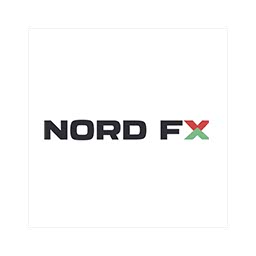 NordFX
NordFX
 XTB
XTB
 Pepperstone
Pepperstone
 XM
XM
 eToro
eToro
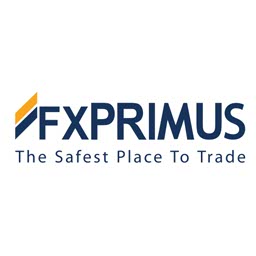 FXPrimus
FXPrimus
 easyMarkets
easyMarkets
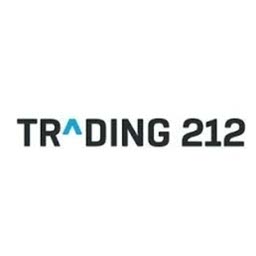 Trading 212
Trading 212
 SpreadEx
SpreadEx
 Admiral Markets
Admiral Markets
 Markets.com
Markets.com
